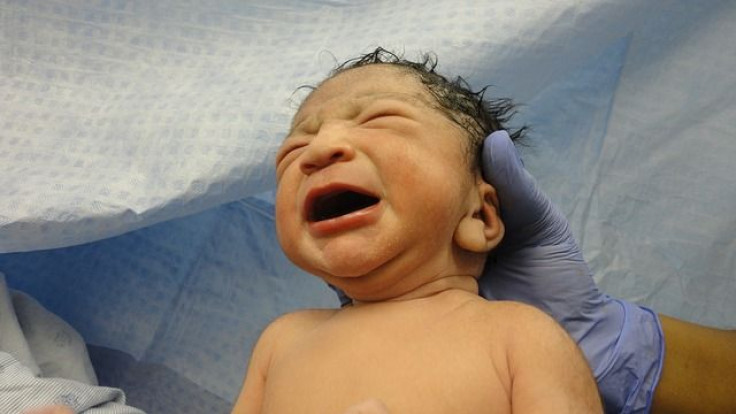Natural Birth Vs. C-Section: Delivery Method Pros And Cons

In 2014, about one-third of pregnant women in the United States gave birth by C-section, according to the Centers for Disease Control and Prevention. Usually a woman is granted the power to choose how she wants to deliver her baby, so why opt for a surgical procedure over a natural birth, or vice versa? Obviously, there are many pros and cons to each delivery method.
"The important message is that both [vaginal and C-section births] are safe," Katherine Economy, MD, MPH, a maternal fetal medicine specialist in the department of OB/GYN at Brigham and Women's Hospital/Harvard Medical School, told WebMD. "But it's also important to keep in mind that if you compare a vaginal [birth] that goes well and a C-section that goes well, a vaginal [birth] is still far safer."
Health concerns could cause a doctor to recommend either natural or C-section births, but how does each delivery method affect the mother and baby? The following information was compiled from Dr. Roy Ayalon, MD and Women's Healthcare Topics.
Natural Birth Pros
Shorter recovery time and hospital stay
Feels more natural for the mother, sometimes giving women a great sense of empowerment and accomplishment
The baby’s risks decrease for many health issues — including certain respiratory problems, persistent pulmonary hypertension, asthma, food allergies and lactose intolerance
Labor may be shorter and move along quicker with future births
Babies are able to breastfeed sooner
Speeds up the bonding process
Natural Birth Cons
Unforeseen complications can occur during labor and delivery
Your baby faces the risk of oxygen deprivation and could experience physical trauma while passing through the birth canal
Mothers have higher rates of urinary incontinence (urine leaks)
C-Section Pros
Mothers don’t have to endure long hours of labor and can usually schedule when they want to give birth
Women are at decreased risk for pelvic floor injury and birth trauma
Avoid post-term pregnancies
A baby’s risk of being infected with the mother’s STD or infection is greatly reduced
C-Section Cons
Surgical risks and complications from anesthesia
Women are at increased risk for serious health complications (like heart attacks, blood clots and postpartum infection) after a cesarean delivery
Babies are at higher risk for persistent pulmonary hypertension
Some mothers who have C-sections will not have the option of vaginal birth in the future due to risk of abdominal tears from pushing
Read more:
Women Having Natural Birth At Home May Be OK If There Were No Major Risk Factors During Pregnancy



























